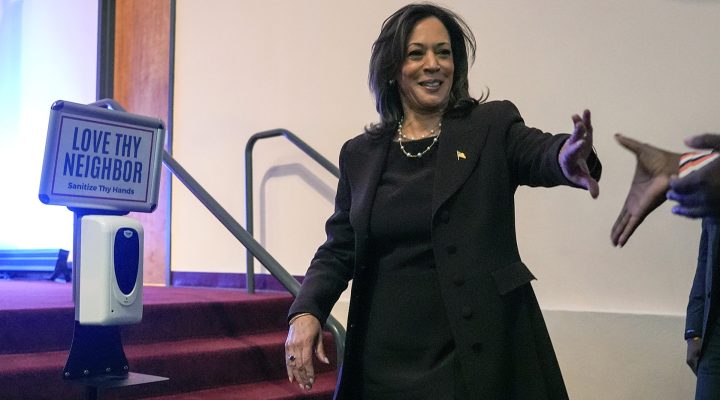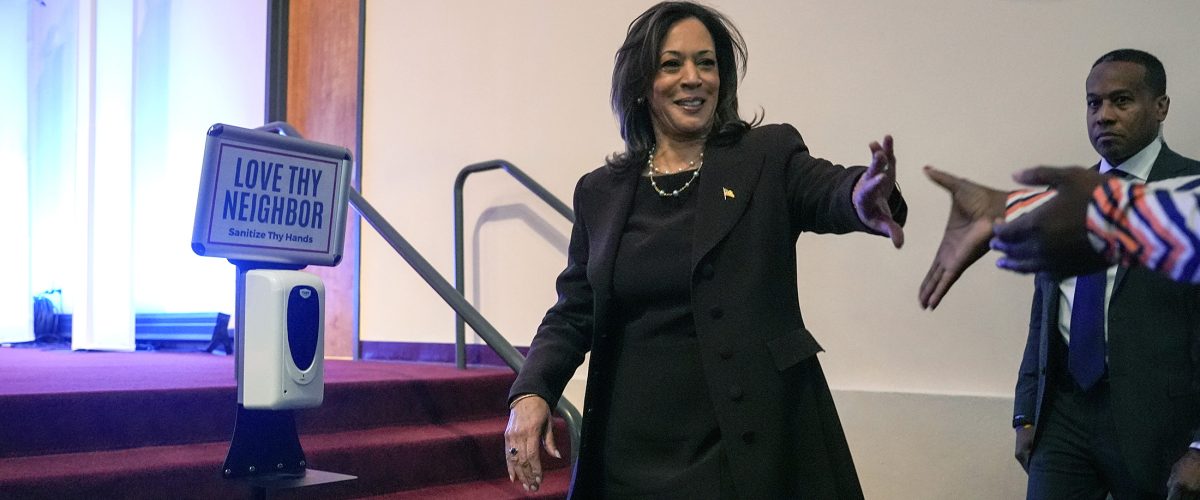Last Sunday, on my way to a neighboring church, I was struck by the sea of political signs lining the road — billboards and bumper stickers promoting candidates for every conceivable office. It’s that time of year again — campaign season.
What startled me most was hearing a sermon that urged us to vote according to our Christian values. A particular phrase echoed in my mind: “If you don’t go out to vote, you are voting for the other team.”
With that, I couldn’t help but reflect on the risks and implications of merging faith with political agendas from the pulpit.

Rosaly Guzman
Let’s face it: Churches today are finding themselves in a tough spot when it comes to politics. Many church leaders feel they should help guide their congregations through the murky waters of political decisions. I get it. They want to uphold moral values and encourage civic engagement.
But here’s the thing: When churches wade into political advocacy, they’re stepping onto dangerous ground. Not only do they risk their spiritual mission, but they could also lose their tax-exempt status as a 501(c)(3) organization. The damage can run deep, affecting everything from the church’s financial stability to its sense of community and its ability to serve effectively.
Think about what Jesus said about this very issue. He told us, “Render to Caesar the things that are Caesar’s, and to God the things that are God’s.” That’s pretty clear, isn’t it? While we’re called to be responsible citizens, our ultimate loyalty belongs to God and God’s kingdom. When churches start using their platform for political purposes, they blur these lines, and that’s where things get messy.
The Apostle Paul had something to say about this, too. In Romans, he writes that we should “be subject to governing authorities” because God established them. This doesn’t mean we should confuse government preferences with God’s will. Yet that’s exactly what can happen when churches get too involved in politics — they might accidentally suggest that their political views are the same as God’s will. Talk about a slippery slope!
“Churches might accidentally suggest that their political views are the same as God’s will.”
Now, let’s talk about what this means for church leaders. I’ve seen it happen. A pastor takes a political stance, and suddenly the congregation starts splitting at the seams. In today’s politically charged world, taking sides from the pulpit is like lighting a match in a room full of gasoline. Remember what Proverbs says about things God hates? One of them is “sowing discord among brothers.” When church leaders pick political sides, they risk turning their church family into opposing teams.
But it goes even deeper than that. Church leaders who dive into politics often find themselves in a real bind. How can you be both a spiritual guide and a political advocate? It’s like trying to serve two masters. The Bible tells us shepherds should guide their flocks willingly, not under compulsion. But when politics enters the picture, leaders might find themselves choosing between what’s politically expedient and what’s spiritually right.
And what about the folks in the pews? When churches become political platforms, it creates all sorts of problems for members. Have you ever been in a church where you felt like you couldn’t voice your opinion because it didn’t match the “official” church position? That’s exactly what we’re talking about. The Bible tells us we’re called to freedom and should serve one another in love. But how can we do that when political views become a test of faith?
The impact on church members goes to the heart of their spiritual journey. When political allegiance becomes more important than spiritual growth, something’s gone wrong. Jesus gave us a pretty simple test of discipleship: “By this all people will know that you are my disciples, if you have love for one another.” Not by our political views, not by our voting record but by our love.
“The Great Commission calls us to make disciples of all nations, but how can we do that if we’re turning away half the population?”
Let’s look at the bigger picture for a moment. When churches get tangled up in politics, they’re not just affecting their own members, they’re putting up walls between themselves and the very people they’re meant to reach. The Great Commission calls us to make disciples of all nations, but how can we do that if we’re turning away half the population because of political differences?
It gets even trickier when you consider how this looks to people outside the church. When they see churches acting more like political action committees than houses of worship, it’s no wonder they become skeptical. We’re supposed to be known for our love and grace, not our political stances. Paul said he became “all things to all people” to reach them with the gospel. Hard to do that when we’re stuck in one political corner.
So what’s the answer? How can churches navigate these tricky waters? I believe we can engage with civic issues while staying true to our calling. It’s about discussing moral principles without endorsing candidates. It’s about encouraging thoughtful engagement without telling people how to vote. Think of it as teaching people how to think, not what to think.
Here’s the bottom line: The risks of mixing church and politics are real, both legally and spiritually. When we keep our focus on unity, spiritual growth and loving one another, we’re much better equipped to fulfill our true mission — sharing the gospel and building communities that reflect Christ’s love.
Remember what C.S. Lewis said. He pointed out that Christianity, if false, is of no importance and, if true, of infinite importance — it can never be just moderately important. The same goes for our churches. Let’s keep them as places of hope, love and spiritual nourishment, where everyone can experience God’s grace, regardless of their political views. After all, isn’t that what we’re really here for?
Rosaly Guzman is a teacher, speaker and life coach. She holds a master’s degree in theology and is working on a doctoral degree in ministry. She serves at Crosslife Church in Oviedo, Fla,, in the women’s ministry.


